Experimentation produces dream outcomes (part 2)
Today is Part 2 of the two-part series on experimentation. In the previous post, I explained why I love experimentation for product development. Today, I want to apply the same concepts to wellbeing, specifically sleep.
To me, “everything is an experiment” and I love experimenting in my non-product life to optimize for feeling more energized, whole, and mentally powerful. In 2020 I bought an Oura ring which is a device you wear like a ring and it measures the quality of your sleep with very detailed metrics. I highly endorse it and I’ve used it as a way to measure the quality of my sleep over time. As they say, what gets measured gets done and through a series of experiments with my sleep routine I improved my sleep by over 10% (which over the course of a week, month, lifetime, is a big improvement in energy levels and wellbeing).
Over the past two and half years, I experimented with a number of changes to my sleep to improve my energy, mental health, and sharpness. Here’s what I tried:
Eating schedule: the single most impactful success for me was adjusting my eating schedule to not intake any calories 3 hours before going to sleep, which for me is about 8pm
Meditation: Meditation is a powerful tool for calming a racing mind and promoting relaxation before bedtime. Mindfulness meditation, in particular, helps reduce anxiety, allowing your brain to transition into a more restful state. Spending just a 5 minutes each night meditating before bed improved my sleep, particularly my REM sleep
Temperature: A cooler sleep environment can lead to better sleep. To experiment with this, consider using cooling mattress toppers, cooling pillows, or simply setting your thermostat to a lower temperature. A cooler room can make it easier to fall asleep as your body's temperature naturally drops during the night.
Hot/cold shower: one of the most fascinating insights I found while learning about sleep and temperature is that your body needs to release heat to cool down and the way it does that is by initially heating up to dispose of heat then cooling down after that heat has been disposed of. One way to support this is to put your body in a hot sauna, hot tub or shower, then follow that up with a cooling session (cold bath or shower) before bed. In Brooklyn, I can’t fit a sauna or hot tub in my apartment so I take a hot shower for 5-10 mins followed by 2-3 minutes of cold. I find this is especially helpful if you’ve been moving your body late into the evening (for me it’s coming home from salsa dancing)
Here’s how what I like about experimentation applies to personal wellbeing. In this case, sleep.
Simple changes can have outsized impact: the simplest change I made was stopping eating or drinking any calories after 8pm once I saw how big an impact that had on my sleep quality
You gain confidence from informed decision making: instead of guessing what might impact my sleep, I have very high confidence in how to optimize my sleep for and I can confidently cut off any calorie intake after 8pm, or make the room cooler when I’m traveling, or meditate before bed
It’s inherently user-centric: experimentation forces you to focus on what’s good for you, not what some other person recommended to you. For example, one of the people I follow is Peter Attia who sleeps great when he fasts. I do not, so I adjusted my own routine
Failure/learning is normalized: learning about yourself and what works for you is one of the great joys of the journey to wellbeing and experimenting with an area like sleep helped me understand what’s best for me and prioritize how to be my best sleep self, which normalized improving other areas of my wellbeing
Quality sleep is essential for your overall well-being and will make you a better product manager because you’ll feel more energized, adaptable and mentally sharper. My experimentation recommendation is to be patient and persistent in your efforts, as it may take some time to see results.
This image is my sleep score on Oura in the first 4 months of experimenting with my sleep routine.

